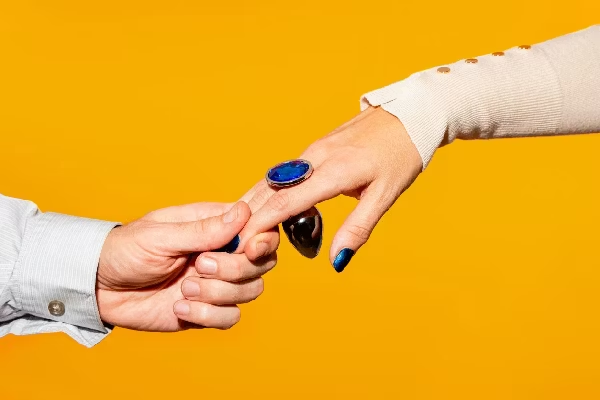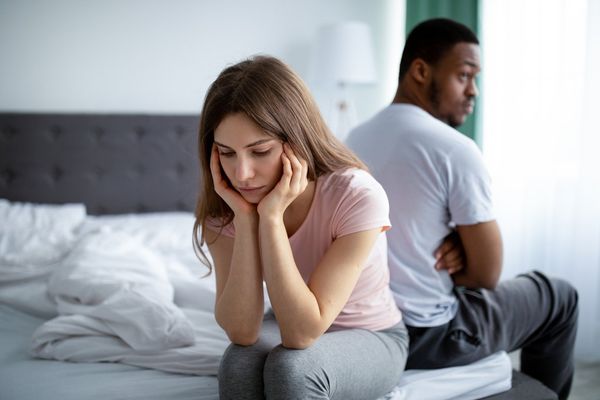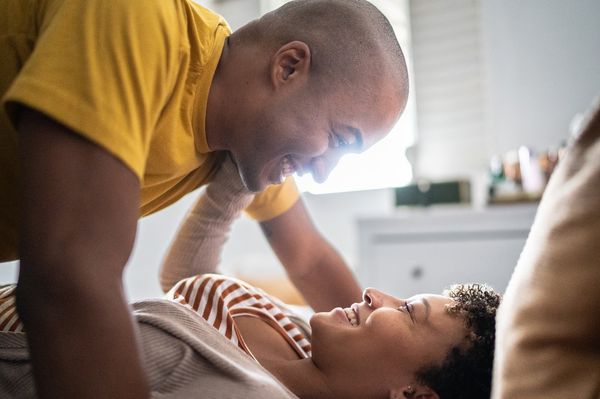Whether you're living with your soulmate, trying to improve a current relationship, searching for the right person, or settled into being solo, you may be missing the sexual spark you once had and are wondering where it went. Dark chocolate is great, but—let's face it—it's not a permanent solution.
Having a satisfying sexual life, with or without a partner, is good for you (provided, of course, that you use protection to avoid sexually transmitted diseases or an unwanted pregnancy).
Being sexually active burns calories, keeps your vaginal muscles in shape and may help alleviate a host of health problems, including depression, stress, pain, headaches and maybe even colds. Midlife and older women who say they are in good health also often report that they have active sex lives, while those who rate their health as poor have less sex.
Still, lost desire extends beyond the simple division of healthy and not healthy. Many otherwise healthy women (and men) experience low or no sexual desire—one of the three most common sexual problems—as do many others who have chronic medical conditions along with sexual difficulties.
If this is your situation, you may believe there's nothing you can do about waning desire, that it's an inevitable result of menopause, aging, health, body changes or being without a partner. Well, think again.
"We can convince ourselves out of desire," says sexuality researcher Laura Carpenter, PhD, an assistant professor of sociology at Vanderbilt University in Nashville. The good news is, by taking a few simple actions, we can find or regain sexual desire.
Where did it go?
Feeling the desire for sex is about much more than internal plumbing. It's a complicated blend of what's happening for you physically, emotionally and even spiritually. That's why your level of desire may differ from other women's, even those of the same age and health. In addition, the fabric of your sexual desire is likely to change throughout your life cycle.
"If we were stuck with our experiences and perceptions from our 20s, we'd be in bad shape. Fortunately, we keep growing, learning, loving and redefining what we want from our sexuality," says Joan Price, a fitness professional and author of Better Than I Ever Expected: Straight Talk about Sex after Sixty." Many women discover that each decade gets better—as long as we're open enough to keep learning, changing and communicating with our partners."
Yes, menopause reduces the levels of the hormones estrogen and progesterone in your body (testosterone has been declining since your 20s). Those changes increase vaginal dryness and may lessen that "instant-on" sexual response you may have had in younger days. There are some pluses to this as well. "We have this cultural stereotype that menopause is going to be the end of great sex," Dr. Carpenter says. "In fact, a lot of women...are saying, "Yeah, and you don't have to worry about getting pregnant anymore. This is great!"
It's not just menopausal women who may contend with a reduced interest in sex. Younger women who use hormonal contraception may also experience lowered libido, Dr. Carpenter notes.
Upending old stereotypes about sexual satisfaction, Dr. Carpenter's research found that, for heterosexuals, midlife helps better balance what a man and woman want from their sexual interactions. Although still valuing the emotional content of their sex lives, women's satisfaction was tied to having orgasms and spending more than 15 minutes in sexual contact. Men rated having love in the relationship as contributing most to their satisfaction.
Loss of desire and dissatisfaction with sex, Dr. Carpenter believes, are more influenced by what she calls "social factors" than low hormone levels. Those factors include physical exhaustion from crammed work and family schedules, the staleness that often creeps into a long-term sexual relationship, concerns about losing youthful attractiveness and the belief that sex in midlife or older is somehow…well, just icky. Then, too, if you've been unhappy in your relationship, lowered sexual desire may become "a disincentive not to bother," she says.
Flying solo
Where does sexual desire fit in your life when you don't have a partner? As with women in partnered relationships, some single women shut down their feelings of desire, others feel frustrated either by sexual urges or the lack of them and still others maintain or restore sexual feelings on their own.
"Realize that you are a fully sexual being whether or not you're in a relationship," says Price, who urges single women to enjoy their own bodies. "Touch yourself and pleasure yourself. Wear clothes that feel sensuous. Get massages and hug your friends to satisfy your hunger to be touched."
If you'd like to be in a relationship with someone else, she adds, nurturing your sexual zing on your own often increases the attraction potential partners feel toward you.
Relighting your fire
If you want to restore your feelings of sexual desire, you can. You may need to try more than one approach to find the best combination of answers for you. Here are several suggestions:
Vaginal dryness not only causes discomfort and pain, but contributes to not wanting future sexual activity. If this is a problem for you, stop expecting your body to lubricate naturally and try some of the many lubricants designed for sex. Price suggests silky lubricants "that feel great and bring back the joy of friction." Use lubricants for partnered sex as well as self-pleasuring (also known by the much less fun-sounding term, "masturbation").
Take your time. You—and very possibly your partner, if you have one—may need more time to get from zero to 60. Set aside time for sex, away from kids, pets, work and any other intrusions. (Vacation sex is a real phenomenon.) Your "best time" might no longer be late at night, so rethink your options. For women who've lost their interest in sex, having leisurely and pleasurable contact often leads to arousal, which then brings on sexual desire.
Make adjustments if health problems limit your movement or strength during sex. "Some positions aren't as comfortable with arthritis or a bad back," says Price. "Maybe we can't bear weight on our knees or arms." Her advice? Find the right pillows and positions, use plenty of lubricant and "figure out a way around the challenges."
Try new things. There are women-friendly sex shops as well as online stores where you'll find sex toys and other supplies that may help you regain lost desire. These can be helpful if the sex in your relationship has gotten dull, Dr. Carpenter says, as well as for sexual fun when you're on your own.
See a doctor if you think your (or your partner's) lack of desire may be linked to a medical condition. Medications, including some antidepressants, can turn off your turn-on switch, but your doctor should be able to find other options for you. If emotional issues are standing in the way of your enjoying sex, talk with a counselor or therapist.
Move more. Exercise enhances sexual pleasure, says Price. Getting physically active with your partner outside the bedroom benefits your overall health and mood as well as your shared sex life. She advises single women to try social dancing, calling it "a fabulous way to be in someone's arms non-sexually."
See yourself as beautiful. You don't have to love every single change that aging may bring, but look beyond the rigid notion that beauty—and sexiness—belongs only to the young.
- Top Sex Positions for Every Type of Orgasm - HealthyWomen ›
- Good Sex with Emily Jamea: The Benefits of Masturbation - HealthyWomen ›
- Good Sex with Emily Jamea: The Paradox of Desire - HealthyWomen ›
- Accessible Sex Toys for Women - HealthyWomen ›
- Sex Toys Helped Me Discover Self-Love - HealthyWomen ›
- Vacation Sex - HealthyWomen ›







